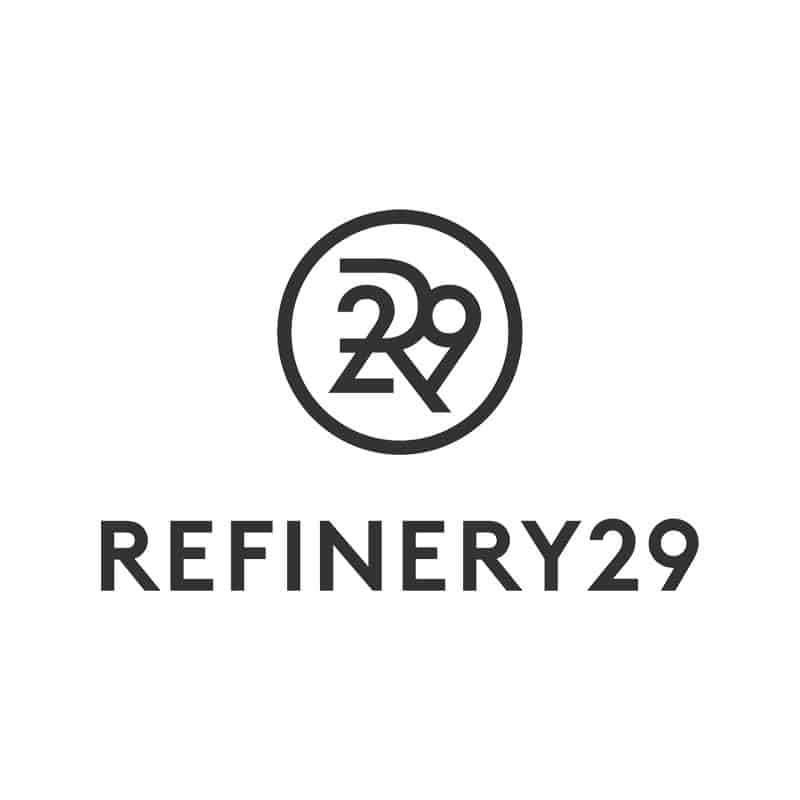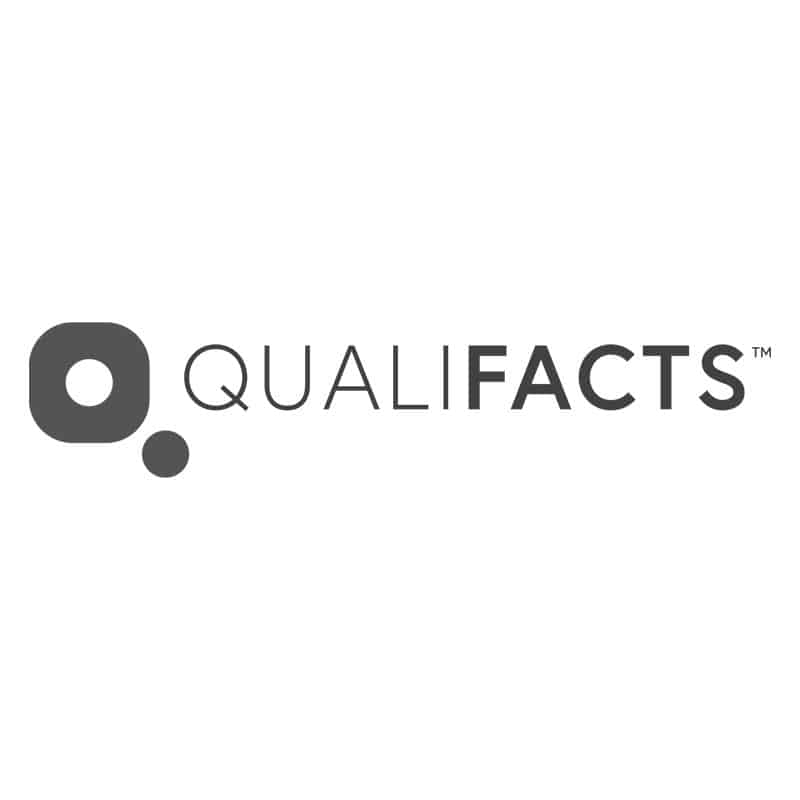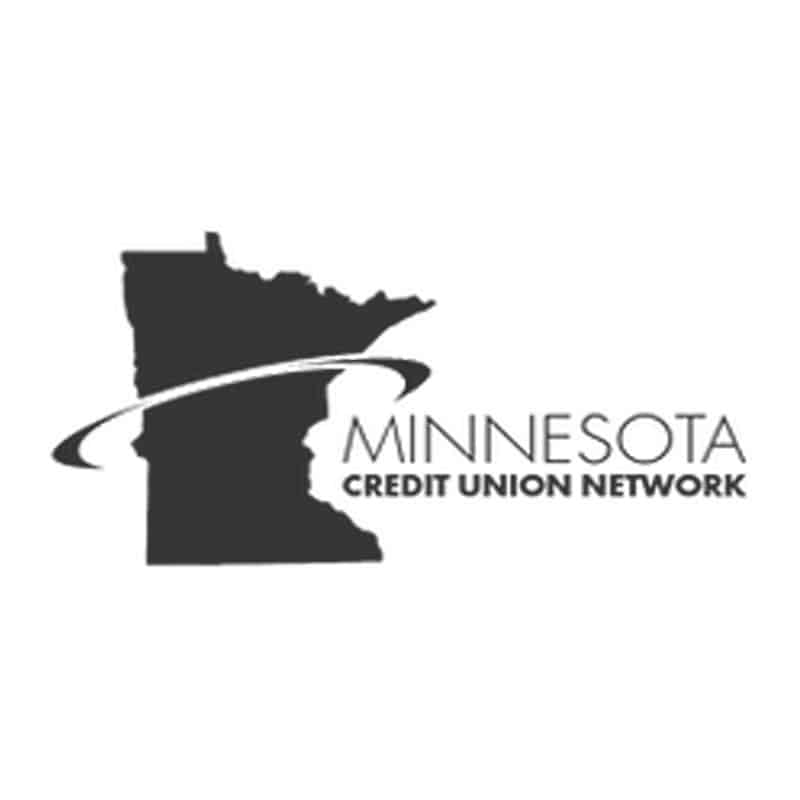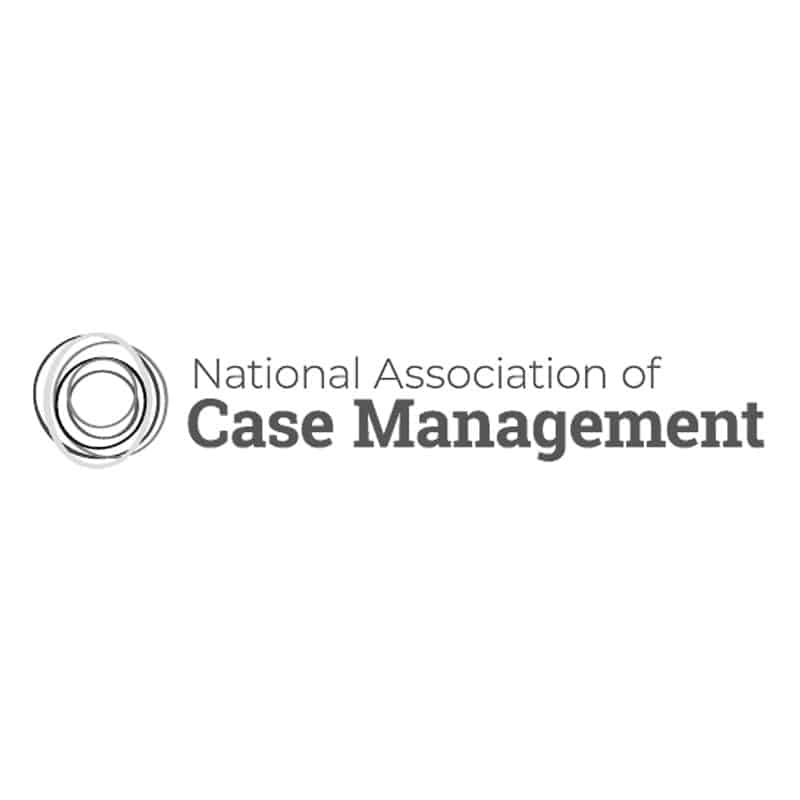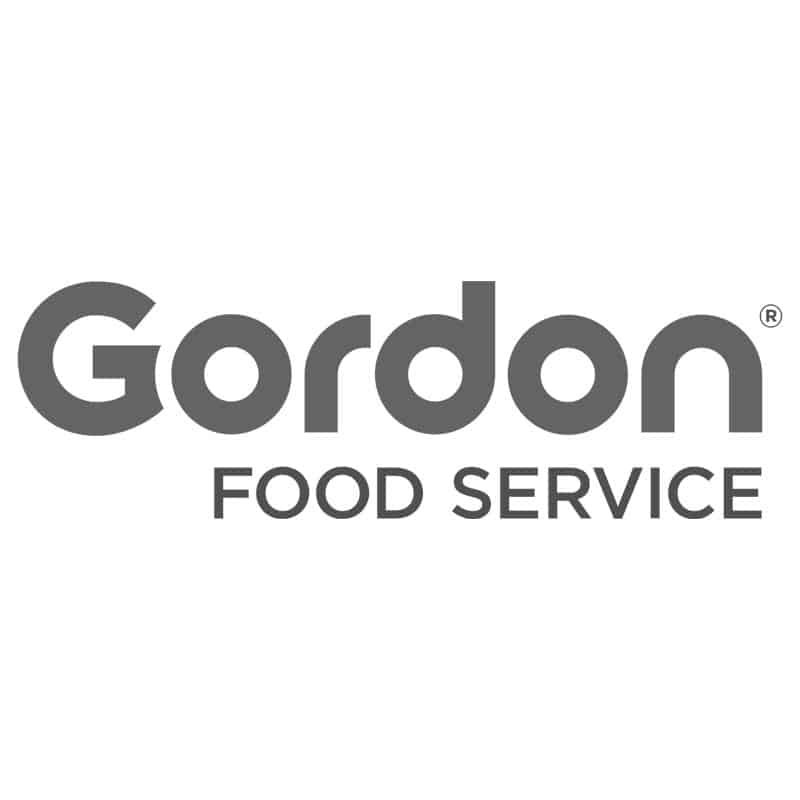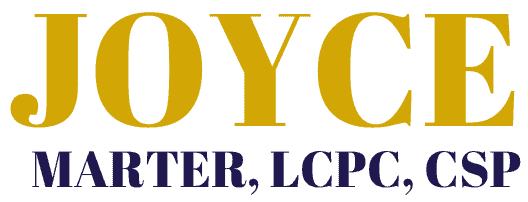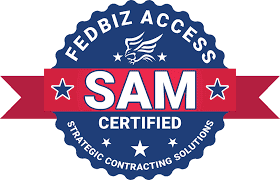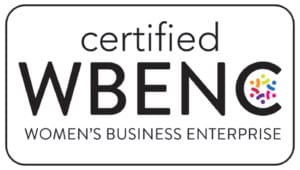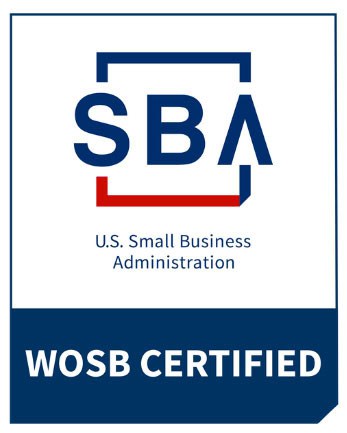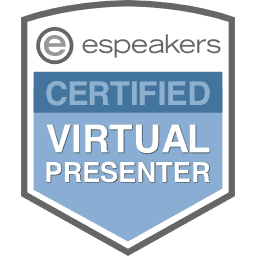Counseling is where my eyes opened, and I developed self-awareness. It’s an ongoing process, and we all need to continue doing our own work. We need our own counseling, consultation, supervision, and attending conferences like this, where we learn, grow from others, and become inspired. We are all ongoing works in progress.
Speaking of self-reflection, the other day I had a moment of insight. I was feeling self-righteous and a bit morally superior, thinking that I’m not someone who has road rage. Then it occurred to me that it’s probably because I cause it. We have to see our blind spots and continue reflecting on our life experiences, how they’ve shaped us, and how we can empower ourselves and our clients to create change.
As Dr. Phil says, “How’s that working for you?” We unconsciously recreate what’s familiar until we choose something better, and it is our responsibility to choose something better. The first time I was in therapy, I talked about my mother constantly. The second time, it was about my ex-husband. It wasn’t until I started talking about myself that my life began to change.
For example, a man who grew up in orphanages and foster homes once said that taking care of himself and recognizing his hardships was powerful. In life, we’re each dealt a different hand of hardships and blessings. Sometimes life doesn’t seem fair, but I believe we each have lessons we need to learn, and how we look at these challenges is our choice.
A client of mine experienced multiple relapses before making the difficult decision to get divorced. She returned to the workforce after ten years, looking great and working hard. After a few months, she called for a “tune-up” in counseling because she started dating a man who was just like her ex-husband, except with an Australian accent. We unconsciously recreate what’s familiar, and we must take responsibility for change.
Change happens with self-love. In counseling, we may love and care for our clients, who then begin to love and care for themselves. Adults need to learn how to be their own good parent. Self-care involves the obvious things like sleep, nutrition, exercise, and having fun. Tending to our dreams and relationships is also part of self-love.
Is practicing self-love selfish or narcissistic? No, it is essential. Think about the oxygen mask analogy: we must take care of ourselves before assisting others. I struggled with detrimental caretaking, where I took care of everyone else to the point of exhaustion and resentment. Choosing self-love takes work and requires turning down the volume of our inner critic.
My inner critic, whom I call Zelda, often needs to be told to take a hike. We need to become our own compassionate advocate. One day, I realized that I’m a great friend to others, but not to myself. Recently, a graduate student of mine looked exhausted. She had a lot on her plate and said her “battery” was at 1%. Another mother of four said hers was at 3%. We need to recognize when we are exhausted and do things to fill our cup.
This is a self-love wheel, with different aspects of self-care on each spoke, such as unplugging from technology, meditation, moderation of substance use, seeing doctors and dentists, and practicing self-compassion and forgiveness. Practicing self-compassion means forgiving ourselves for mistakes and moving through them.
We need to assess our self-love regularly. This exercise is like stepping on a self-love scale. Without the support of friends and colleagues, we can achieve very little. Organizations like ICA help us advocate as a group. As counselors, we often give support easily but struggle to ask for it.
When I was asked to give a training on a new topic, I practiced what I preach and asked for help. Three colleagues provided me with resources, saving me hours of work. Our support network is like a garden that needs nurturing and sometimes weeding. I had a toxic friendship with a psychiatrist that I needed to end for my well-being.
Think about your support network as having a menu of what each person can provide. For example, one friend might be great for shopping, while another is better for emotional support. Helping our clients access appropriate support is also important.
I have a support wheel here. Do you have a community, healthcare support, financial support, good friends, and family? Communities like yoga studios or neighborhood groups can provide a sense of support. Consider your support network and how it supports you and your clients.
Eckhart Tolle, who I mentioned earlier, said that whenever you feel superior or inferior to anyone, that’s the ego in you. I find this really interesting because it’s easy to understand the ego as feeling better than others—arrogance or grandiosity. But it’s also our egos that make us feel small, inadequate, envious, or insecure. We all have egos; they are part of the human condition. The ego is like a mask we wear to the world. I like to think of it as the way our mind identifies who we are. However, I don’t believe we are our egos. If you believe in the mind-body-spirit connection, the ego is the mind, and we are the spirit, our essence. True success requires detachment from the ego, the ability to take that mask off, to be vulnerable, authentic, and real, and to realize that we are all equal and divinely worthy of all that is great.
I think a Cherokee tale illustrates this well. A Cherokee grandfather tells his grandson that inside him is a battle between two wolves. One is evil and represents hatred, anger, jealousy, false pride, lies, insecurity, ego, and superiority. The other wolf is good and represents love, humility, benevolence, kindness, compassion, gratitude, forgiveness, faith, and love. He tells the grandson that this same battle is going on inside everyone. The grandson asks, “Which wolf will win?” and the grandfather replies, “The one that you feed.”
Detachment is another crucial skill for success. Once, I was at Target and saw a customer being extremely rude to the cashier. The cashier remained calm, cool, and collected, continuing to be polite despite the rudeness. When it was my turn, I told him I was impressed by how he handled the situation. He replied, “I don’t let anyone in my head who isn’t paying rent.” That’s a skill we can all develop—the skill of detachment.
In my own therapy, my therapist talked about feelings as waves of emotion in our bodies. We can choose to surf these waves rather than be engulfed by them. I like the analogy of a lifeguard: you want to have your feet firmly on the ground to help someone else rather than drowning with them. We need to practice detachment to avoid being overwhelmed by our clients’ emotions.
I have two teenage daughters, which gives me plenty of opportunities to practice detachment. I remember when my oldest daughter, Celeste, was three, and Claudia was a newborn. My older sister, Paula, who is like the perfect mom with perfect kids, was coming to visit. One night, Celeste had a temper tantrum, and I was so frustrated and embarrassed. Paula smiled and said, “Oh, you lack horns. You need to detach.” It reminded me of cognitive-behavioral therapy—our thoughts fuel our emotions and behaviors. I realized my belief system was causing me distress. I developed a new mantra: “I’m just a human being doing the best I can. This moment will pass. I’m a good mom.”
That week, I saw a friend with her temper-tantrum-throwing three-year-old, and she calmly handled the situation, which taught me more about detachment.
Another experience was with my friend Randy, who asked about my book, “Mental Wealth,” at a holiday party. I was feeling down about my progress, and he suggested I see his Buddhist monk. The monk turned out to be a former executive, and he gave me a profound insight: “Weaken the fiction.” He meant that we often tell ourselves narratives that aren’t true, which can hold us back.
I love yoga, which is meditation with movement. A military man in a yoga class once said they call yoga “resilience training” in the military. This resonates with me because yoga has taught me to breathe through discomfort, knowing it will pass, and I will become stronger and more flexible.
One challenging pose, Crow Pose, was something I thought I couldn’t do. But by weakening the fiction I told myself, I eventually succeeded. This experience reminded me that our challenges help us develop resilience. Resilience happens when there is high trauma and high support.
In my business, Urban Balance, I started with $50,000 of debt and $500 cash, choosing to be insurance-friendly. This decision was criticized because of lower rates per session. When the company grew, I faced financial challenges and had feelings of inadequacy. Despite the difficulties, I learned valuable lessons about resilience and the importance of seeking help when needed.
I was afraid that somebody would tell me my dream business wasn’t going to work out and that I’d need to fold. So, I stuck my head in the sand, leading to a really big loss. My business partner, who was one of my best friends, emailed me saying she couldn’t take the stress anymore and was leaving. She never came back. Many of our therapists left, and many of our clients left too, thinking, “What the hell’s going on? There are financial problems, and one of the owners just left.” It was a dark day.
I learned so much in that moment. I felt like the captain of a ship, ready to go down with it. I was prepared to file for business bankruptcy if I had to, but I believed in Urban Balance. I had staff working for me and clients depending on the company. So, I ate a piece of humble pie and opened myself up to humility. Instead of telling the staff, “I’ve got this; everything’s going to be fine,” I said, “I am so sorry. I messed up and need help.” Once I said I needed help, support came out of the woodwork. People were more than willing to help. My staff said, “We love you here and want to help you.”
A neighbor told me, “Joyce, you need a business valuation.” I didn’t know what that was, but he referred me to his CPA for help. I remember going there with my QuickBooks file, my hands shaking and tears in my eyes. The CPA crunched the numbers and said, “Joyce, your business model works. You truly have a cash flow problem, and I can help you get the right lending so you can pay your therapists on time.” With his help and the leadership team’s support, we turned the ship around. When I sold Urban Balance last year, we were grossing over five million dollars a year. I could never have done that without the support and help of others and asking for that help.
Having gone through tough experiences, like losing both my parents, I now know, as Eleanor Roosevelt said, “You never know how strong a woman is until you put her in hot water.” She’s like a teabag, and I think that’s true. Hard experiences build resilience and help us know we can survive other challenges. Aren’t we awed and inspired by the resilience of the human spirit? Compassion and empathy are the magic wands in counseling and relationships.
I had a client once with whom I had a rift during some deeper work. I said something that hurt her feelings, and we needed to process that. I apologized, we worked through it, and I empathized with her feelings. She said, “You know what, Joyce? I think you are my first healthy relationship.” Sometimes, we are that for people through compassion and the ability to step out of our own stuff and be there for others.
How can you use compassion in your work as a counselor? Have you ever made a vision board? I love vision boards and make one every year, for both personal and professional goals. I’m a big believer in work-life balance. I named Urban Balance because I felt my highest role was as a mother, but I also love my work as a counselor. I wanted a career where I could see clients during school hours and be home with my family in the evenings and on weekends. We have to develop that vision and believe that it is possible.
When I started my practice at 24, people told me I was too young, there were too many therapists in Chicago, and I couldn’t only see clients during the daytime or take insurance. I respectfully chose not to believe them and forged ahead. It’s that tenacity that is an ingredient for success—refusing to give up and trying again and again.
My book has been rejected by 20 publishers, but I’m still working on it. I act as if and walk around saying, “I am a Hay House author and speaker.” The more I believe in self-fulfilling prophecy, the more the universe responds. We are the authors of our own life story. How do you want it to be? We see clients with an external locus of control, and we need to help empower them to grab their oars and map out where they want to go. We set our own ceilings, so dream big and have a big vision.
I’m passionate about abundance. I don’t believe self-care is selfish; it’s essential. It bothers me when people say they didn’t go into this profession for the money. What we do is important, meaningful, and helpful work, and we deserve prosperity. Money is not a bad thing. When we have money, we can help more. As Urban Balance grew, I was able to serve in volunteer positions, donate to charities, and offer sliding fee scales or pro bono services. You can’t do that when you’re struggling. We need to value ourselves as a profession.
When I graduated in 1996, the starting salary for a counselor was $18,000 a year. I had $50,000 in student loans and heard someone got a $25,000 salary right out of school. I wanted that and got a job making $25,000 a year at a methadone maintenance clinic. Then I aimed for $35,000 a year and achieved that. When I started my private practice, my friend Steve, also starting his practice, aimed for over $100,000 while I aimed for $60,000. He made over $100,000, and I realized I was setting my own ceilings. So, I expanded my thinking about money.
My counselor asked me what money meant to me. I said, “Stress,” because of my father’s financial struggles during my childhood. She helped me reprogram that belief to see money as a resource I deserve. My life changed.
Negotiation is important. Women statistically don’t negotiate as much as men. I found this true as an employer. There’s always a range; you have to ask for more and value yourself. I’ve started negotiating for everything I can. For example, when signing leases for Urban Balance, I asked for free filing cabinets, saving me $1,200 each. Creativity and valuing yourself are key.
Several years ago, I had my first out-of-state keynote. I didn’t know what to charge, so I asked my friend Ross. He gave me his rate, and I used it. The company agreed, and I was amazed. Later, I found out Ross had given me his full day rate for just 45 minutes. Believing you’re worth it can have a tremendous impact.
Shifting your thinking about money is crucial. Dr. Joyce Brothers said, “Success is a state of mind. In order to be a success, you must first think of yourself as a success.” My brother jokes that he’s Dr. Joyce’s brother, even though I’m not a doctor. But the sentiment is clear: how you view yourself matters.
Consider your relationship with money and your profession. Here’s my last wheel for you, focusing on professional satisfaction. While at this conference, reflect on how you’re feeling about your work and how it supports you. Ensure your wheel is full to avoid burnout. Make sure you’re getting professional development, mentoring, and connection to colleagues. Do meaningful work and learn new skills.
Thank you so much for having me and letting me share my thoughts on the keys to success and mental wealth. I wish you a fantastic conference and thank you for your time.
